Jack Burke
Words: Brian Goldstone
"always wanted to see how much I could handle, what would happen if I just kept going and how I could do more than everyone else."
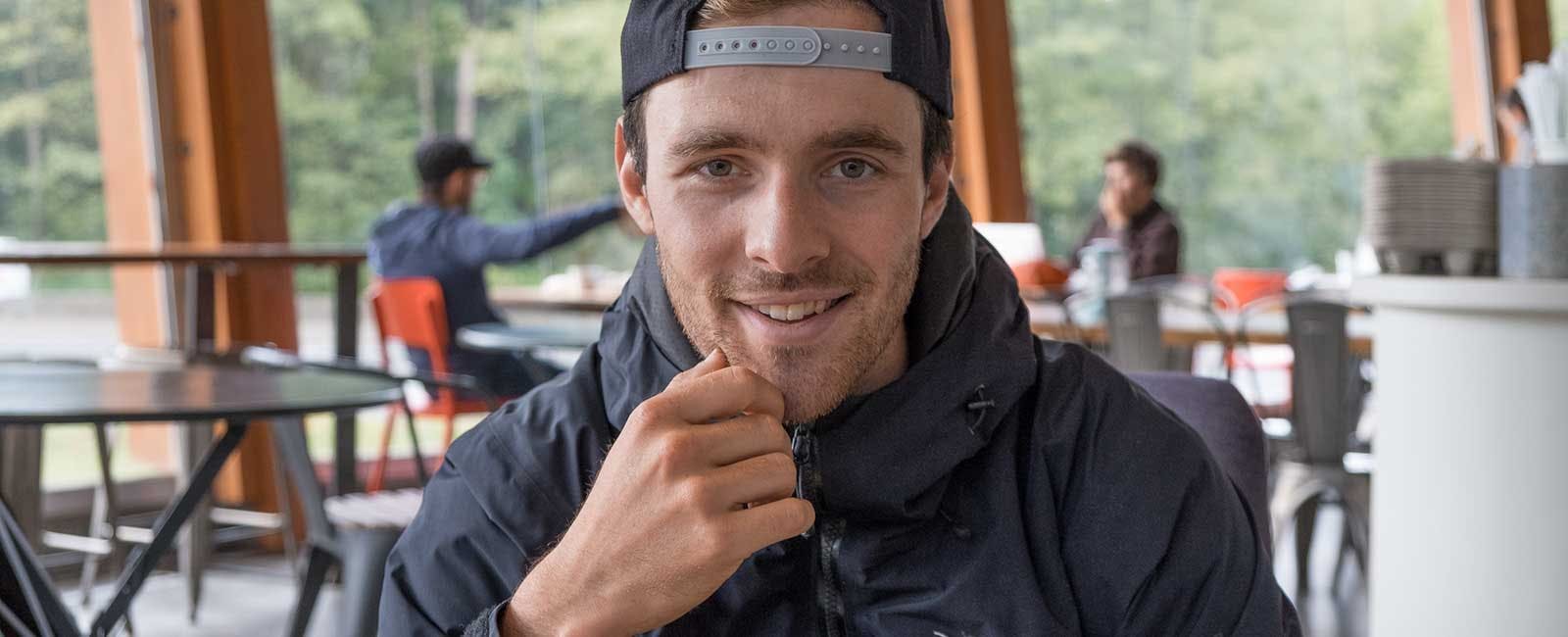
If you say the name “Squamish” to a group of mountain bikers you’ll likely hear the buzzwords ‘epic’, ‘incredible’, or ‘world class.’ Say the same name to a group of roadies and they are more likely to think it is a vegetable than a place to ride bikes. It’s not that Squamish and the Sea-to-Sky Corridor don’t have roads. Locals know that just 10 minutes out of town in either direction will deliver some of the nicest views of the BC Coast that you can find anywhere. It’s rather that the mountain biking is so good that it smothers any reputation Squamish has as a road cycling destination.
Recently, the Squamish road scene received a major boost to its reputation in the form of a young cycling pro named Jack Burke. Jack (aged 22) came to Squamish from Toronto, Ontario to study at Quest University while continuing to pursue his passion for the sport and hopefully transform it into a career. While it’s obvious talking to him that he loves Squamish, a quick study of his palmares and rapid ascension within the sport indicates that he may not be here much longer.
The 2017 race season was Jack’s best so far. He finished as the Best Young Rider at the Tour of Alberta and had numerous top 5 finishes at prestigious events. He’s now taking some much needed time off to recover before starting his winter training. Jack was kind enough to sit down with us to talk about his career, life off the bike, and what’s next for him.
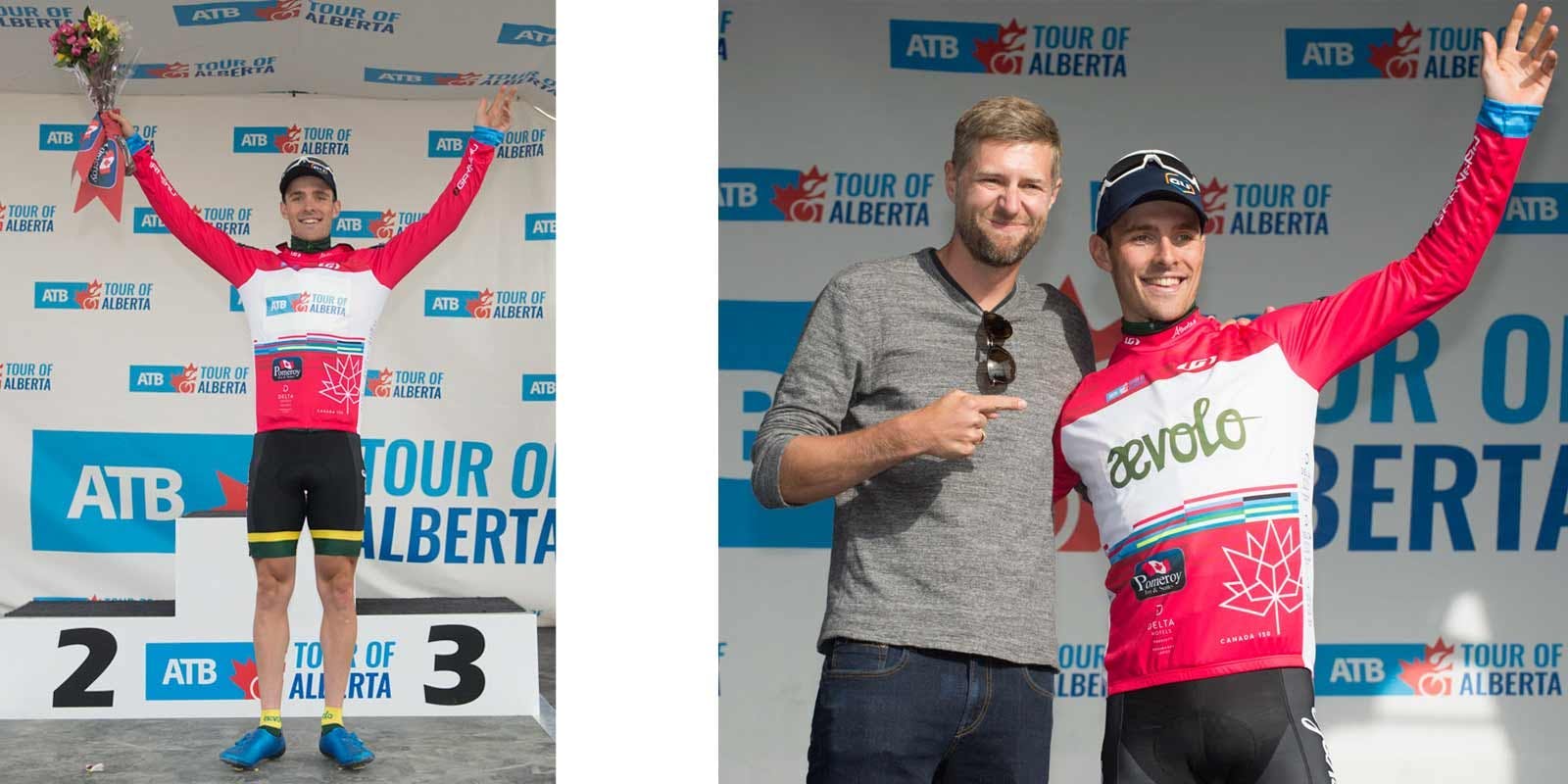
On your website you mention that you were late to the sport. When did you decide to pursue cycling as an athletic discipline? Why so late? Was it ‘love at first site’? Where and when did you have the internal ‘aha’ moment where you realized this was what you wanted to do?
I guess I didn’t start riding late at all, I was addicted to my mountain bike as a kid. Mountain biking was actually my first love. Now I didn’t get into racing until I was 17, which is late. I grew up a hockey kid and got hooked on mountain biking when I was 11 years old. I got a job when I was 12 working in the basement of a local bike shop so I could afford the bikes and do one or two races a year with friends. It wasn’t anything serious, we were just messing around and building dirt jumps in parks after school, and watching all the downhill videos coming out of places like Whistler. I guess when I was racing XC I always just wanted to reach the next step, whether it was the provincial team or racing a Canada Cup like the older kids. When I switched to road in high school I was pretty good at it from the start. It was really the immediate success in road racing that led me to pursue it further.
When did most of your peers start riding seriously? How much of an advantage does that give?
I don’t think when you get into it is as important as how you get into it. When I was growing up racing XC, the other kids had nicer bikes and had started doing it years before because they had parents that were into cycling as well. Mine have always supported me but it took me going to the World Championships years later before my dad stopped calling the peloton the ‘pentagon’! And because we didn’t have extra money for that stuff I got a job when I was 12 to afford the bikes. I was getting up at 4am to train before school since I had to work after school, and just figuring it out on my own. I think those are the things that are more important if you really want to make it all the way. I never had any external pressure or someone guiding me in the sport ‘til I was close to high school graduation. I had to develop the work ethic and knowledge base on my own. In my case I think a lack of external pressure allowed my internal motivation to naturally flourish.
Of course, it’s a huge advantage if you’re groomed by the national team, have coaches guiding you and are getting to all the races from a young age, because by the time you reach the U23’s you have 4 years of opportunities to get results at races you’ve been doing for years. I only started going to those races in my last 2 years of U23 which is difficult because WorldTour teams want U23’s and as you age out each year it becomes more difficult to make the jump.
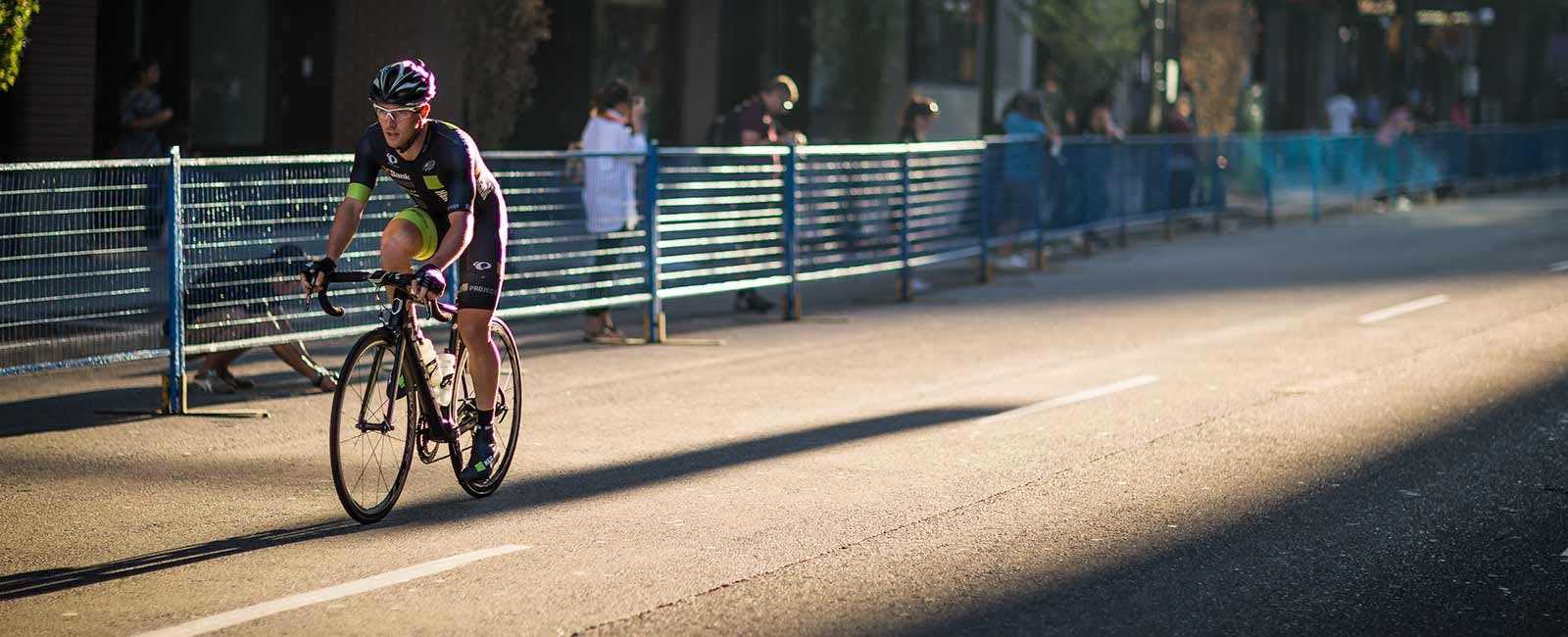
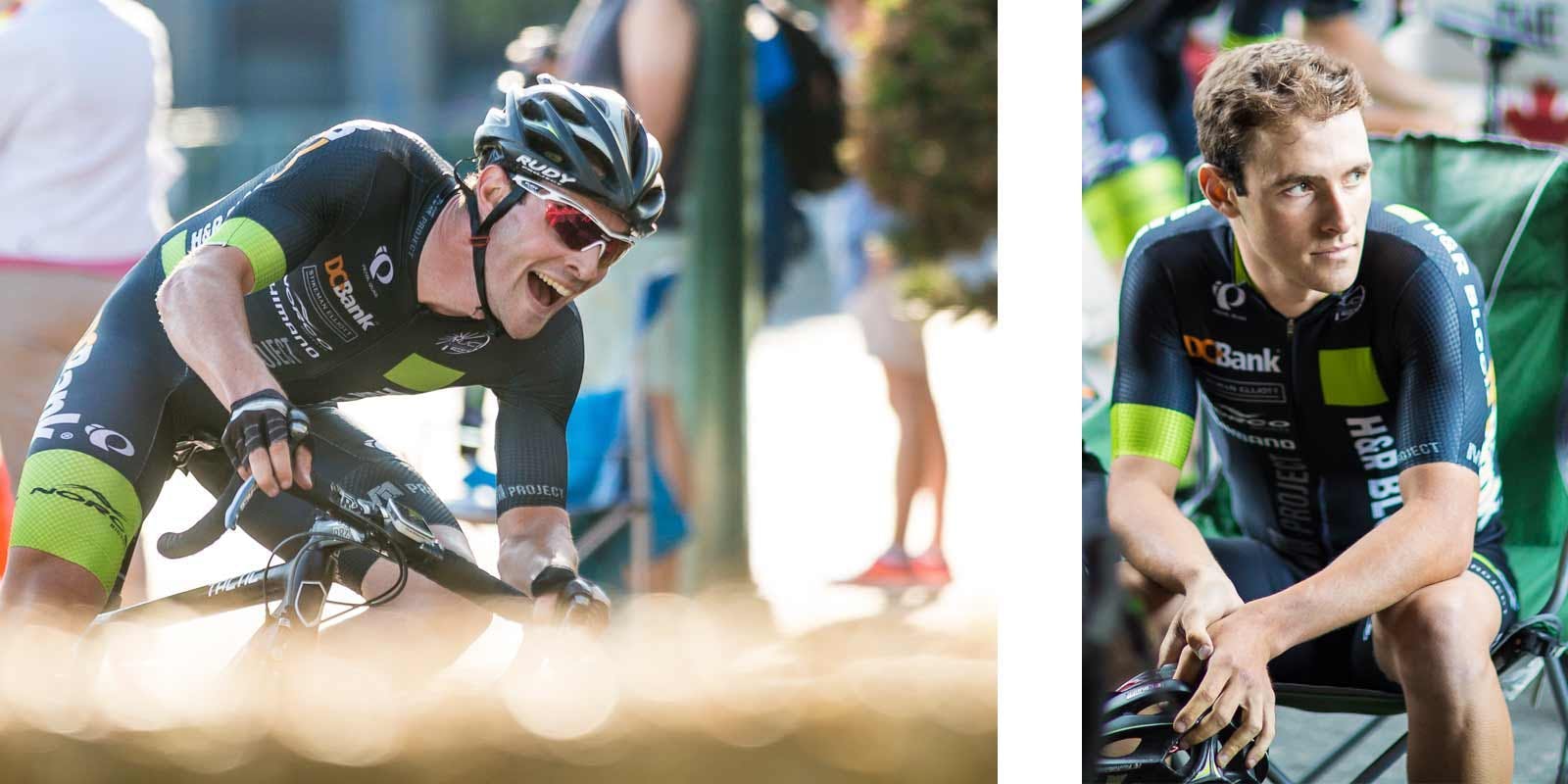
Your Quest University submission video features a 2.5 hour training ride at 5 AM, a full day of school starting at 9, another 2 hour ride after school, then 3 hours work at a local bike shop. Have you always been this driven? Where did this capacity for training come from?
I’ve always been super driven. My parents likely played a role. For as long as I can remember they have been getting up for work at 5 AM and finishing at 9 PM. When I was a kid I wanted to win so badly I just blocked everything else out and was only ever thinking about getting better. I’ve always been really good at handling a ton of training load. I always wanted to see how much I could handle, what would happen if I just kept going and how I could do more than everyone else and after years of that I think your body just adapts. It’s always been about adventure, curiosity and self-exploration as that’s what I find fun.
You’re no longer in school as you’re focusing on Cycling full-time. How did you balance going to university, a self-described ‘militant’ training schedule, and a racing career?
Those were such cool days, I’d go out riding at 3 PM with a backpack full of food, lights, and spare dry clothes then finish as late as 2 AM all the time. I’d be racing up Mt. Cypress in the middle of the night or riding back down the highway all by myself just seeing how far I could go or how many times I could climb Cypress and Seymour. When I’d get too tired or cold or my lights would die I’d just hitchhike back to town. That was 5-6 days a week. We even had this funny arrangement between my skier friends and I so I could go hut skiing with them and still train. I would wear snowshoes instead of skis and when we got to the trailhead we’d take all the gear out of my pack and fill it with everyone’s beer. My friends would carry my lighter gear up and I was like a yak lugging all the heavy stuff up the mountain to the hut on snowshoes. That way we could go at the same pace and I didn’t have to pitch in for gas money. During the next few days when they’re all getting runs in, I’d snowshoe up with them, then when they all ski down I’d sprint straight down the mountain after them as best I could, like a trail dog. I’d get going faster than my legs could keep up with and at some point I’d sink in too much or a snowshoe would get caught on something and I’d go head over heels, full tomahawk and yard-sale style. It was hilarious and everyone was in tears laughing each run but it was so much fun and one hell of a full body workout.
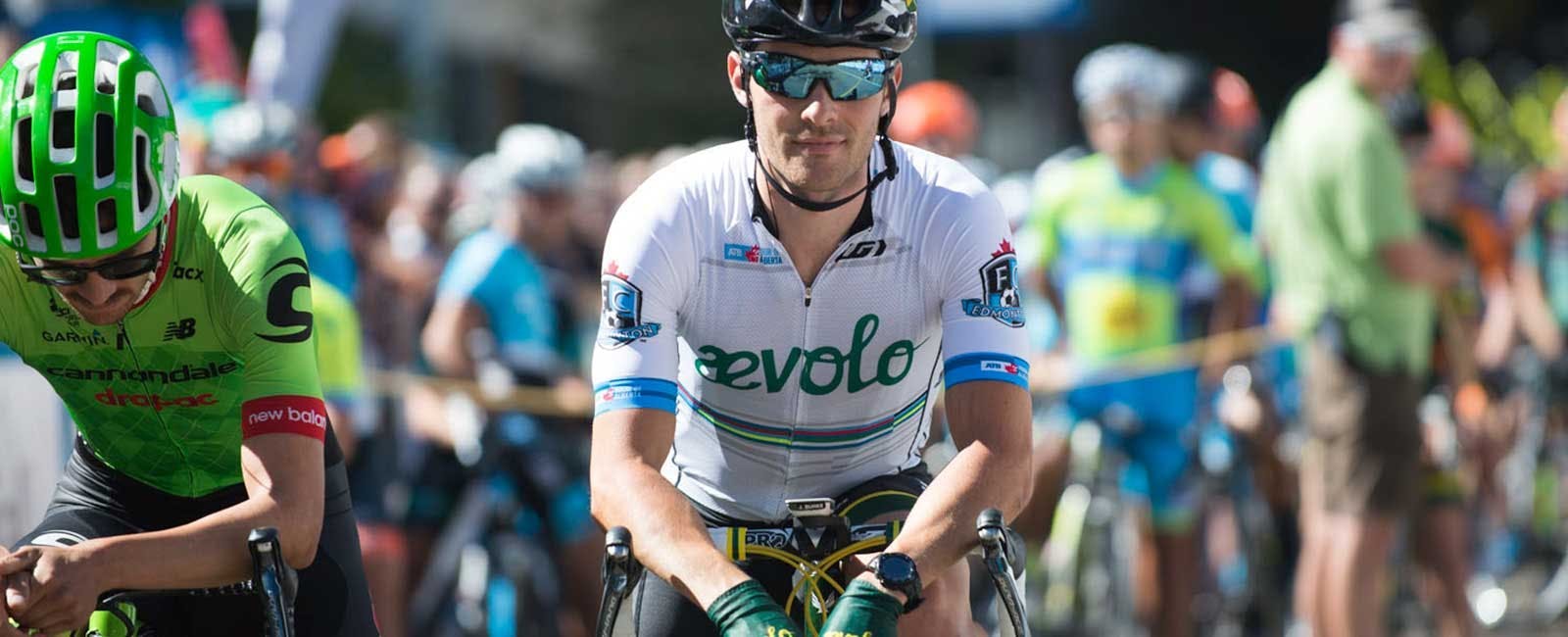
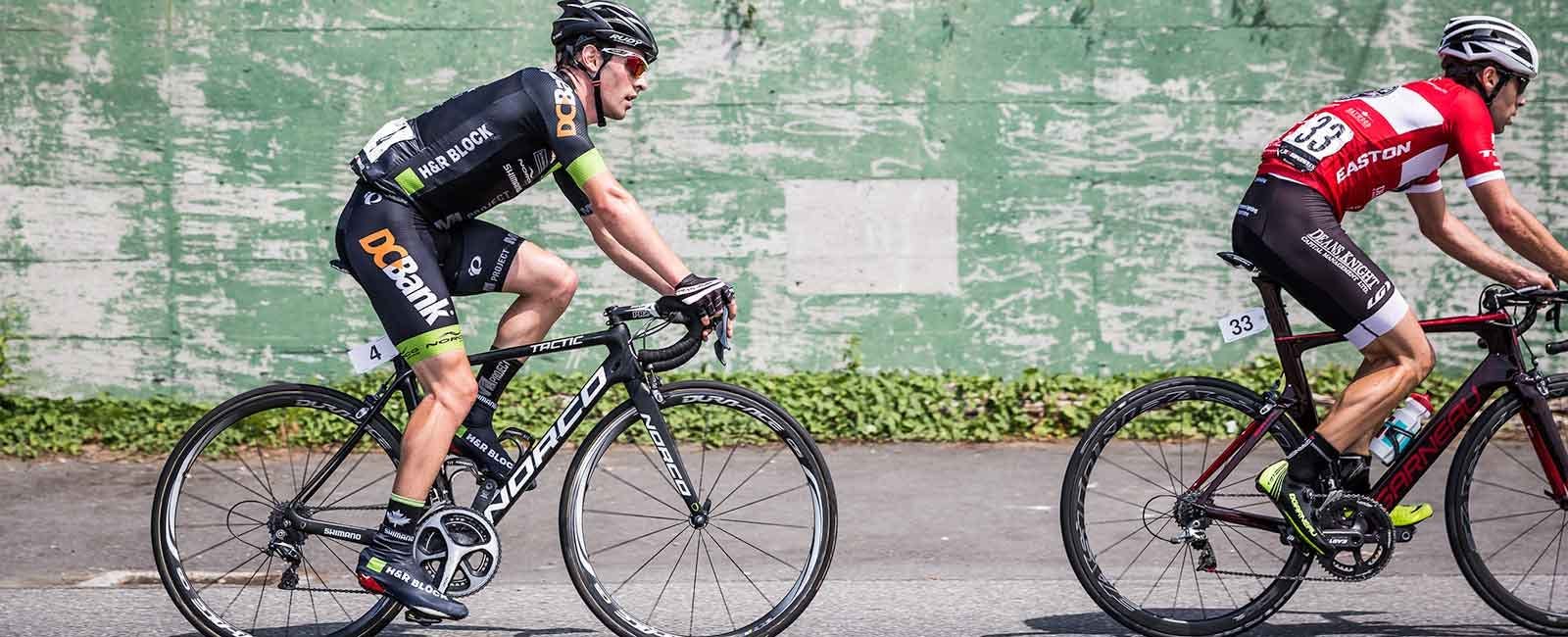
Your parents followed you all of the way out here from Toronto to support you. That is obviously a major life change for them… has that made things easier for you?
My parents have always given me everything they have to help support my dreams, which has been incredible, but moving out here they did for themselves. Basically after a few years of me sending photos home and talking about how much better it is out here they picked up and moved. Originally, they moved because of the snow and cold winters (in Toronto), the traffic and just how beautiful BC is but now they’re also realizing all the fun outdoor activities there are out here. Having them out here for sure makes my life easier as well. It would be difficult having all my family back in Ontario especially since I travel so much with cycling. I’m only ever able to spend a week in Ontario each year after the National Championships.
"Recovery is really the limiting factor for how much training you can do and I think most people have it confused with just being a slug and watching Netflix all day on the couch during rest days."
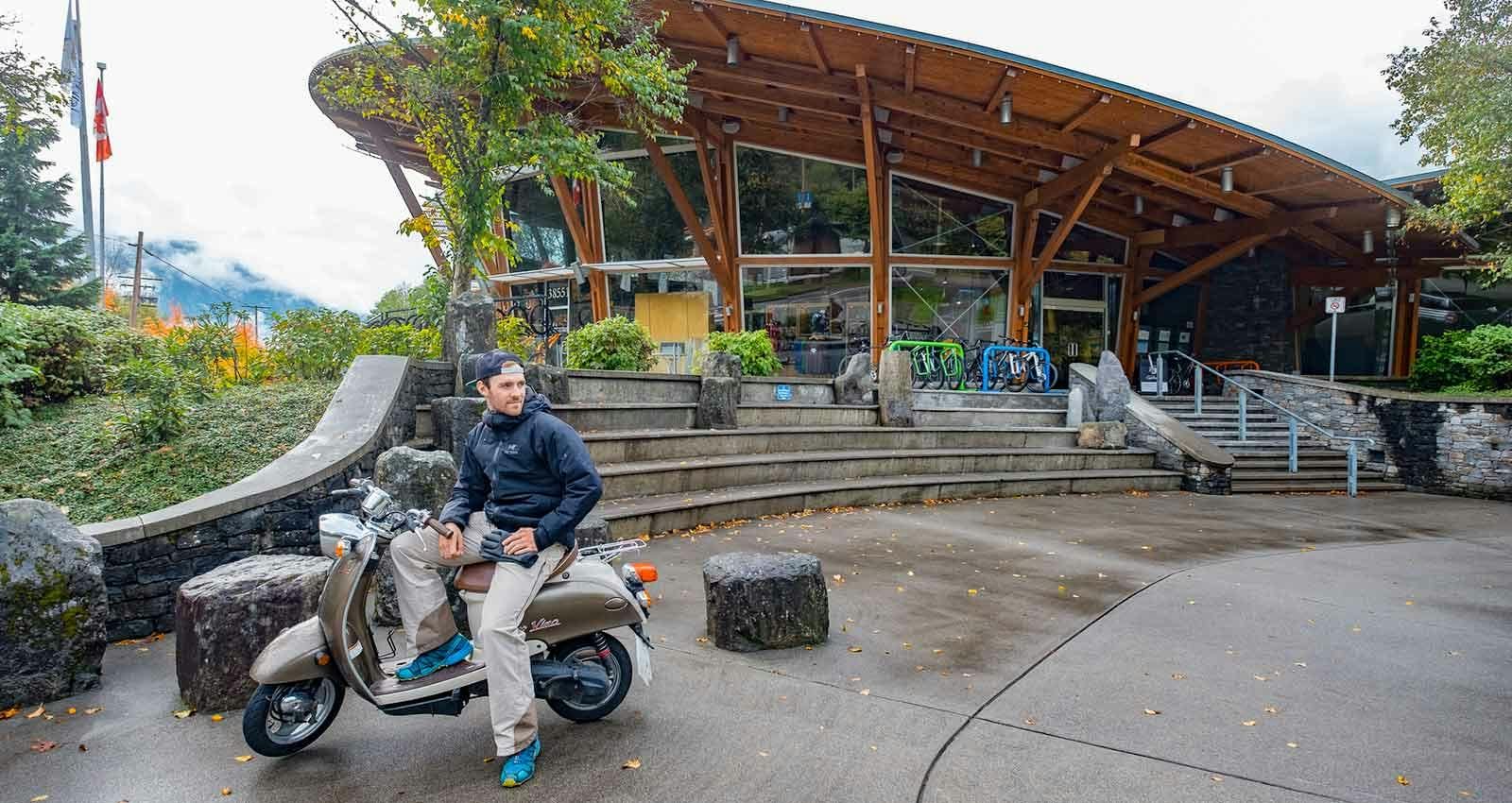
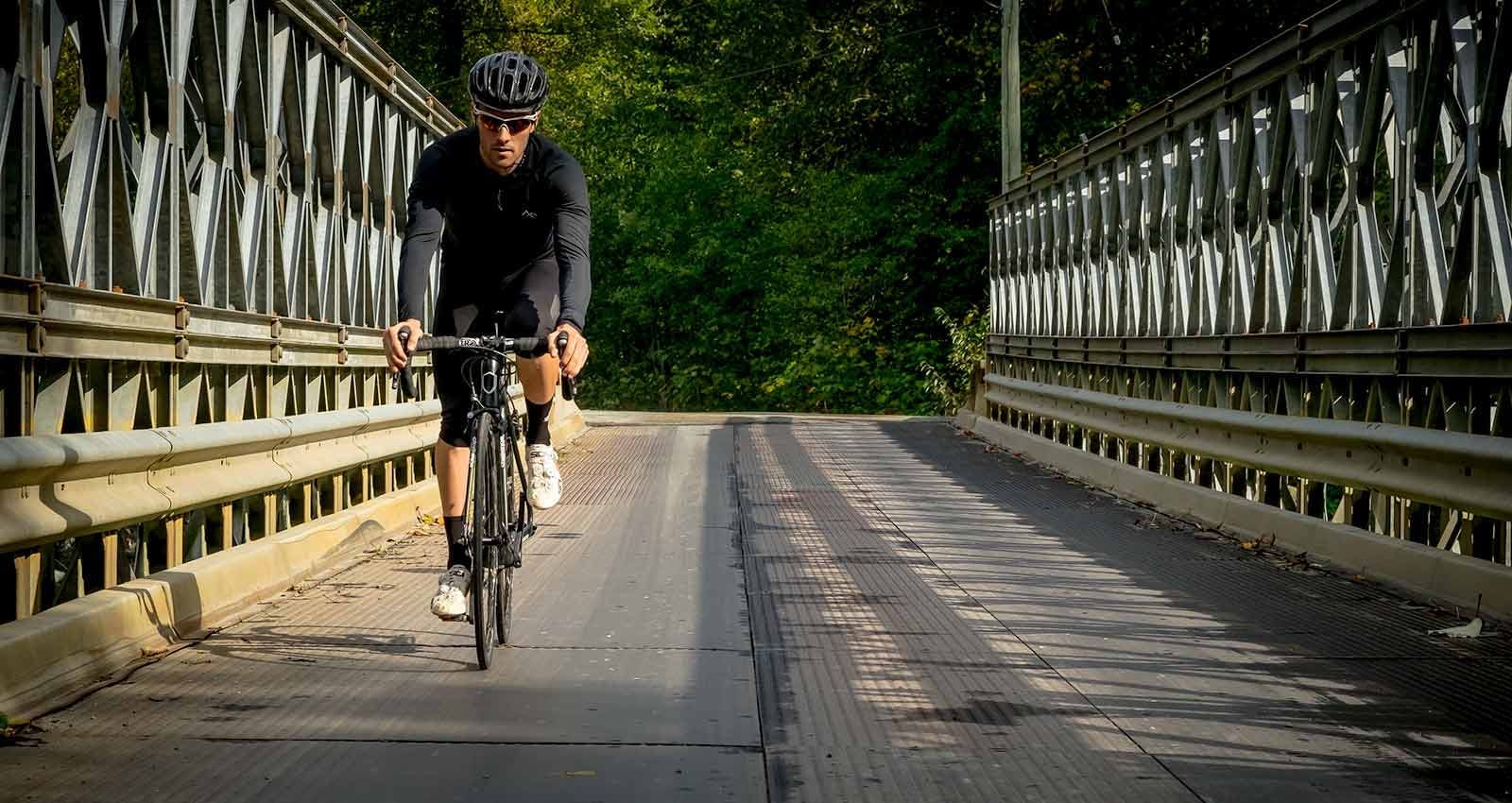
Exercise is a known stress reducer. For many recreational cyclists riding a bike is a crucial part of maintaining mental health. Does cycling provide that for you? If not, what do you do to stay balanced?
For a pro it doesn’t work like that. The training volume and the specific nature of each workout make it much more like a job. Don’t get me wrong, I love riding but you need to pull your mind away from it to stay fresh. Something unique I did a lot more of this past year that made a huge difference for me is spending a lot more time in nature for recovery, and getting myself healthier and recharged. Recovery is really the limiting factor for how much training you can do and I think most people have it confused with just being a slug and watching Netflix all day on the couch during rest days. My recovery day stays the same year round and looks like this :
- Sleep in till 7-9am
- Breakfast which is the same everyday and is pancakes with oats, eggs, banana and a bunch of other stuff in them
- Go out for an easy 1-2 hour ride super gentle
- Lunch and done by around 1pm, I grab my hammock and a 3.5L bladder full of water and walk out my backdoor into the trails barefoot and find a sweet spot to hang my hammock and take a nap. I never bring any technology with me aside from a normal watch, I never hang my hammock from the same two trees, I always walk through the forest barefoot and I’ll usually just be out napping, drinking a ton of water and doing my own type of meditation for 2-4 hours.
- Then I come back and have dinner around 5-6pm. I like to have the sun be the last light I see before bed. This means no TV or screens after dark, and I’m in bed and asleep by 9-9:30.
It sounds super weird and hippie-like but I find this to be the most relaxing and recharging way to spend my rest days, and I really enjoy it more than anything. At the World Championships in Norway this past September I couldn’t find a cold river anywhere. So I was riding my bike from the hotel to go swim for half an hour in the North Sea every day. All the staff and riders think it’s insane, you’re going to get sick and you need to just be resting, but it makes me feel so much more recharged and energized.
One of the phrases I have heard you say a few times is “You’d be amazed by the ideas that you come up with when you spend hours every day pedaling alone.” What ideas are you referring to?
Everything. I’ve thought of crazy adventures and trips I want to do, what I might do after cycling, visualizing my dreams and goals, how I could totally crush a burrito right now. One idea that came to fruition was taking one of those blow up boats that are meant for backyard pools, hiking up to Garibaldi Lake with it in the fall, blowing it up with our lungs then fitting two dudes and 70 lbs of gear in it and paddling it 6.5 km across the lake with industrial sized ‘mixing spoons’. The boat ride alone was 8.5 hours each way. We were going so slow and our arms were so tired that we considered swimming on several occasions. The water would’ve had us hypothermic within minutes so each time we quickly got back to paddling.
"The reality is the sport is so unbelievably hard that if you don’t have the tools, no opportunity or connections will make up for that."
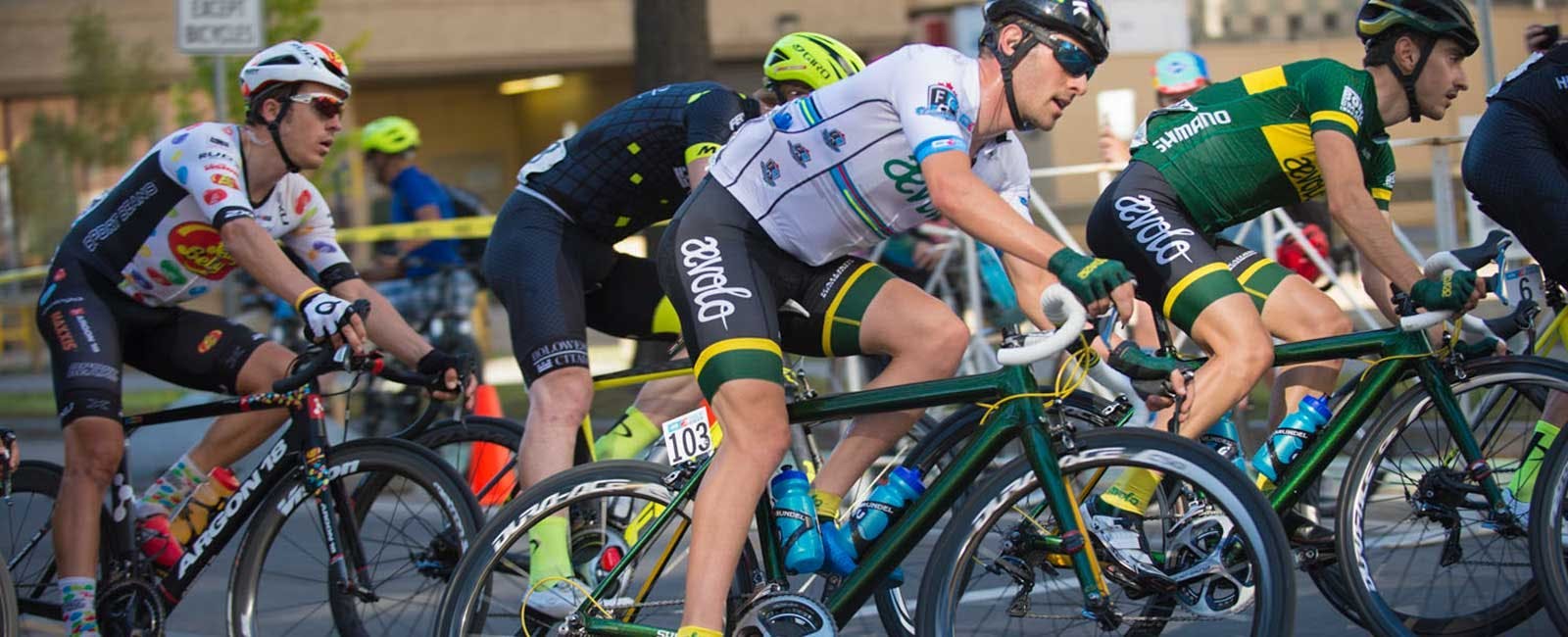
What are things that you wish people told you when you were first entering the sport?
I don’t know. I don’t have any regrets about my path to where I am now. I’d recommend looking for and accepting help more often but also there are so many people that preach such awful and negative advice to up and coming cyclists it can be so hard to discern which people you should listen to. I wish I would have started earlier and gotten onto a pro U23 development team right out of junior and had 4 years of time to get results to jump up to the WorldTour. But perhaps I wouldn’t have learned the extra grit that’s far more valuable in the big picture once you do make it. Now I’m seeing tons of guys that had all those opportunities and made it so young and were supposed to be the next big thing struggle as the next level is so much harder. The reality is the sport is so unbelievably hard that if you don’t have the tools, no opportunity or connections will make up for that. That’s one of the things I like the most about cycling. Every single one of those guys at the Tour earned the right to be there all on their own, and every one of them would still be there if they were barely earning enough to survive.
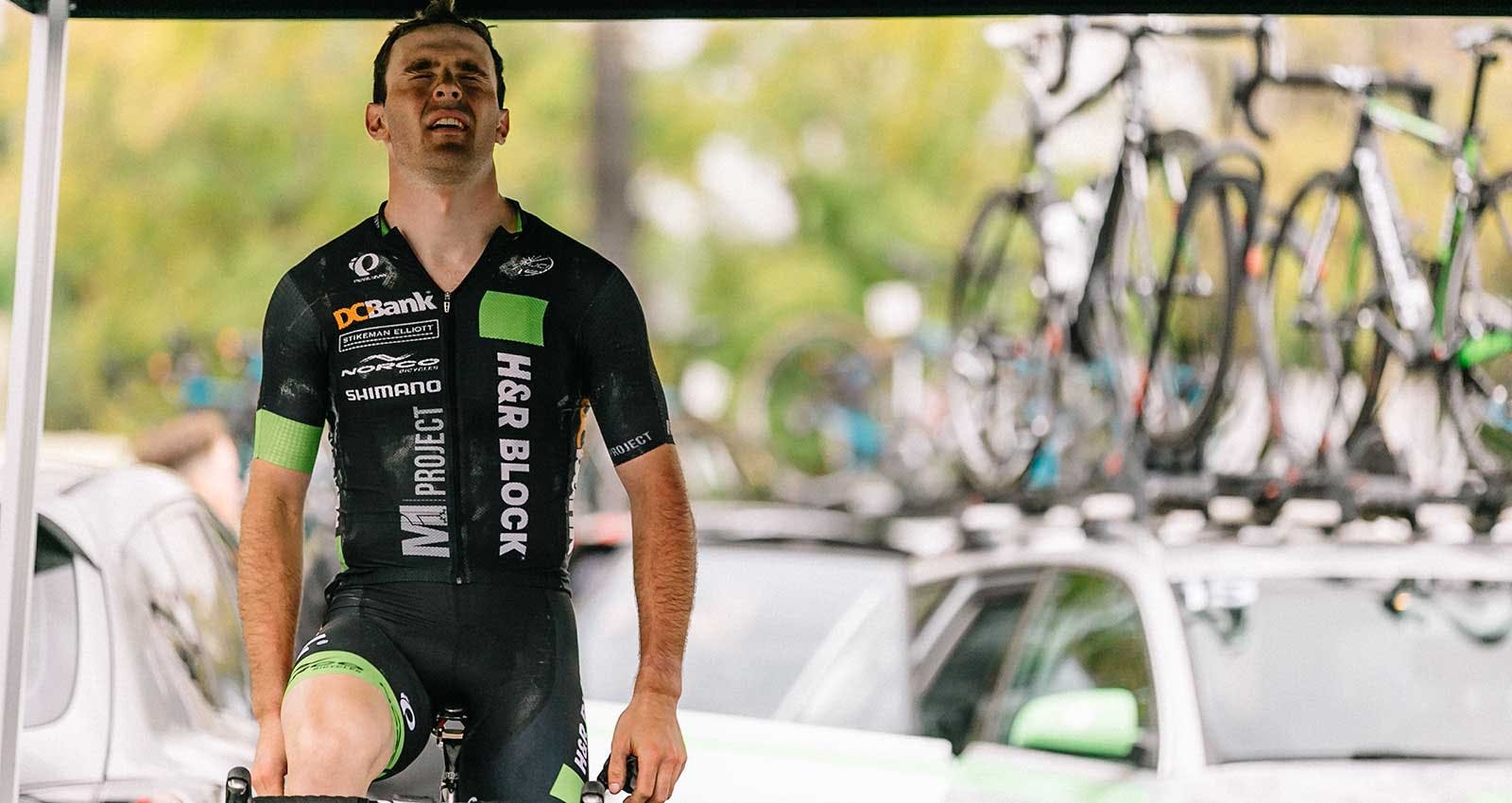
Tell us about the opportunity to turn pro, and what’s next for Jack Burke?
Racing as a North American pro is all about opportunities. Getting to the races and having the chance to get results for yourself to move up to the WorldTour. Then you start getting your teeth kicked in and working your way back up the totem pole all over again. You have to enjoy the process and where you are right now, and not think ‘life sucks now but once I make it it’s going to be great’. Next year I’ll be riding as a team leader on the ideal squad to make that final jump up to the WorldTour and I’m so excited to be a part of that organization.
Editors Note:
Jack’s tenacity has also been tested in an entirely different way. Early in Jack’s racing career, at the age of 18 he tested positive for trace amounts of a diuretic drug called HCTZ. To defend himself he had to endure two trials, both of which he won after it was determined the source was contaminated drinking water. The final ruling, at the international Court of Arbitration for Sport (CAS), concluded Jack “is not a liar or cheater,” bore “no fault,” and didn’t deserve any reprimand. You can read the entire story here.
